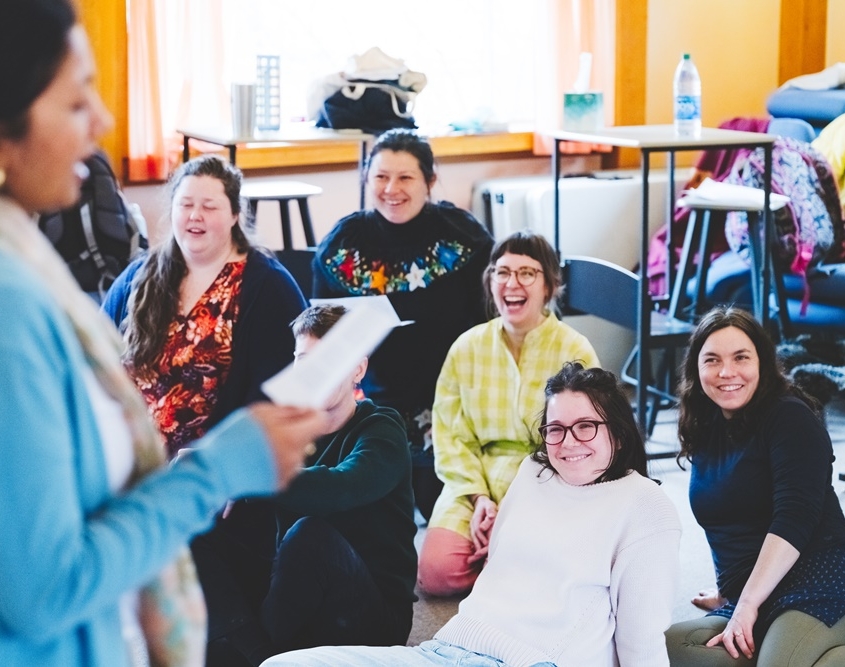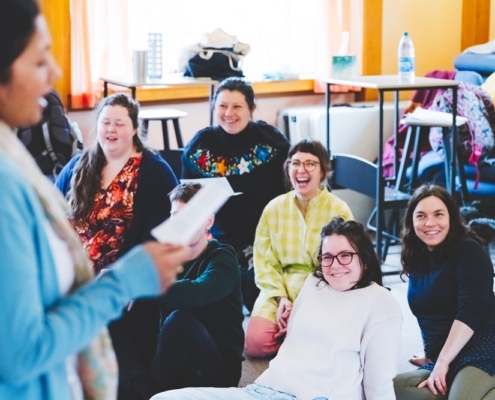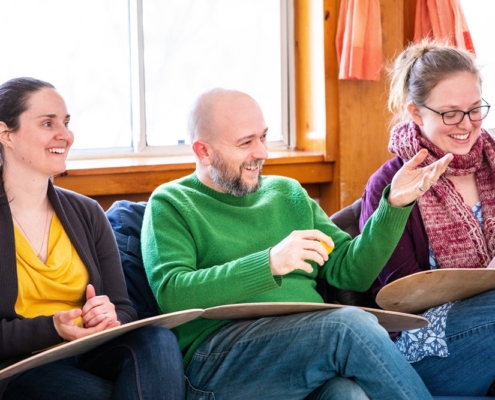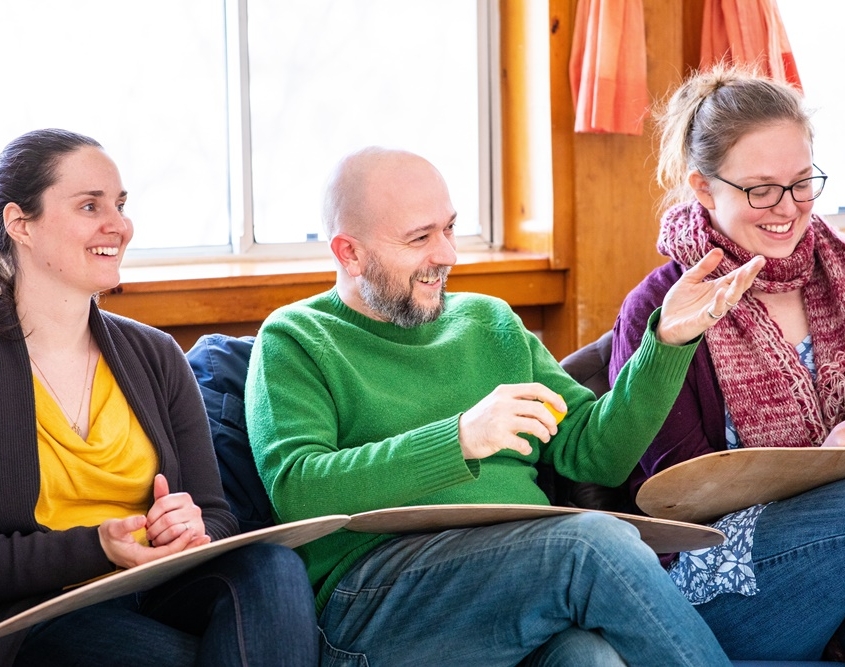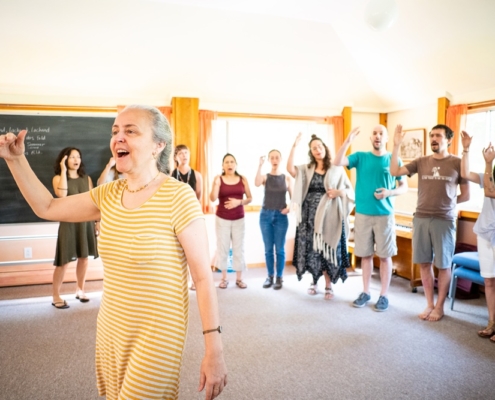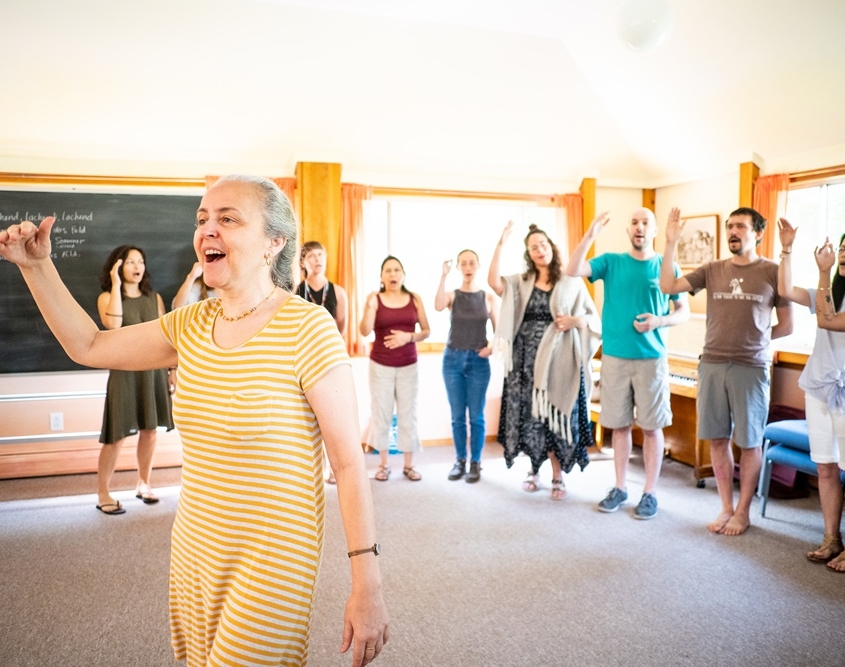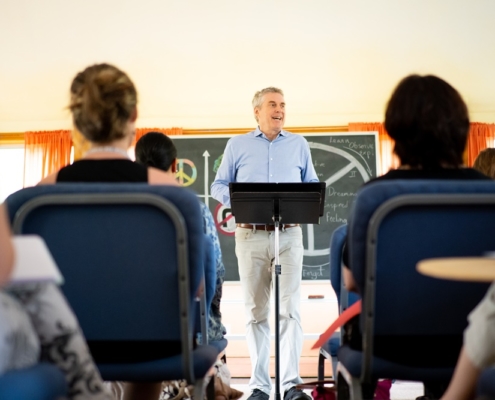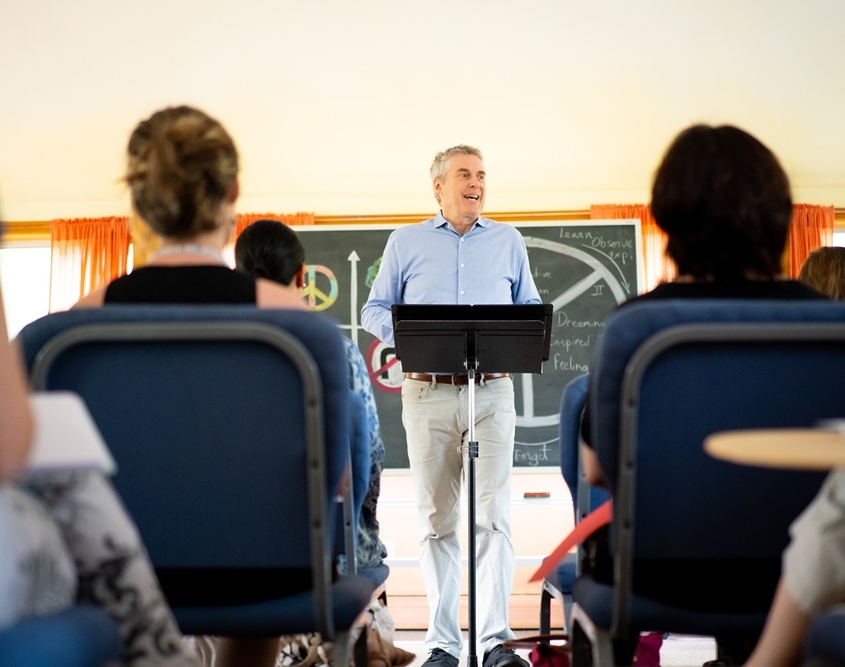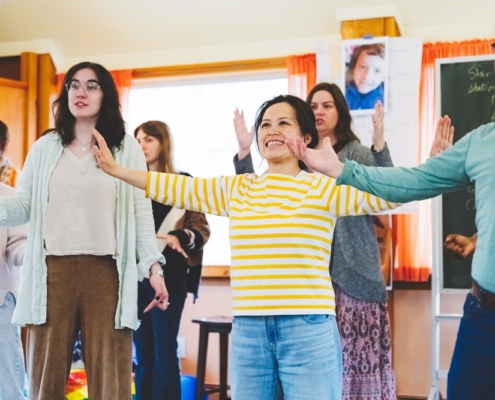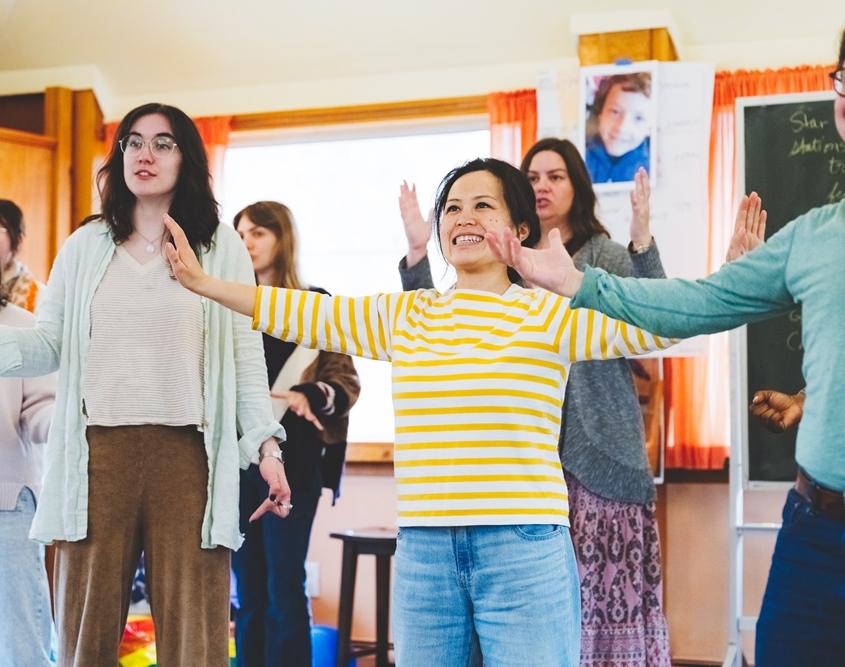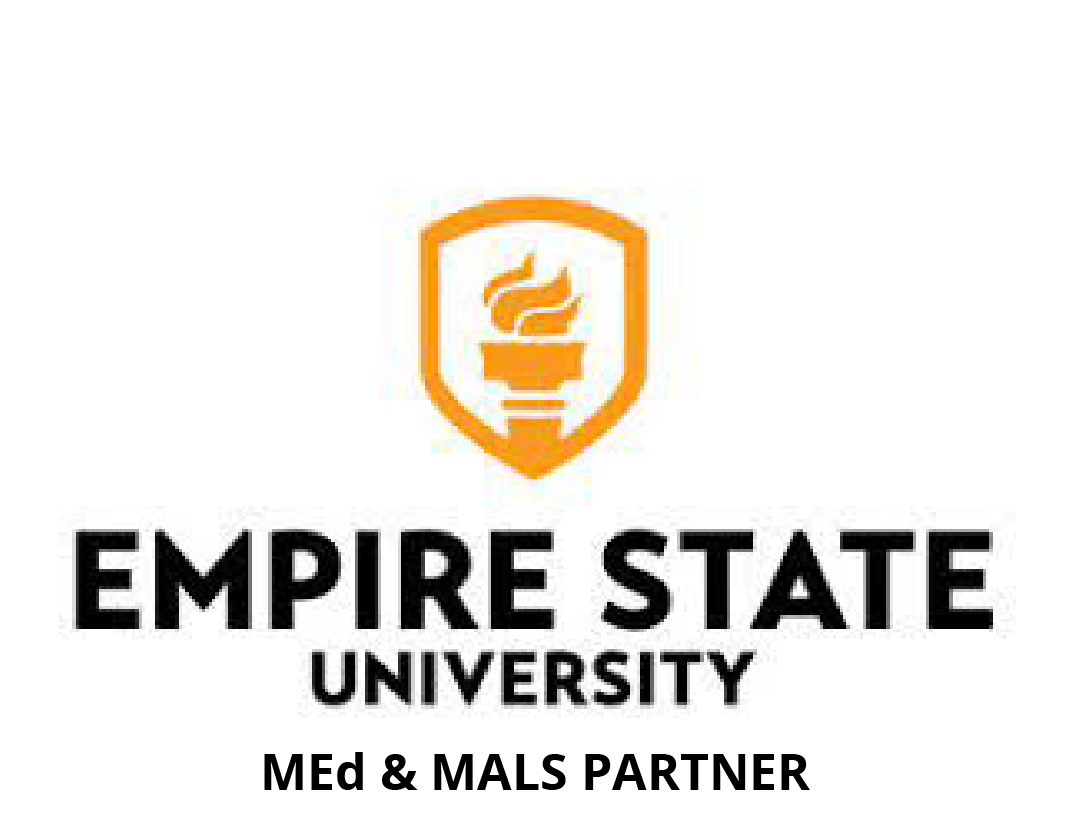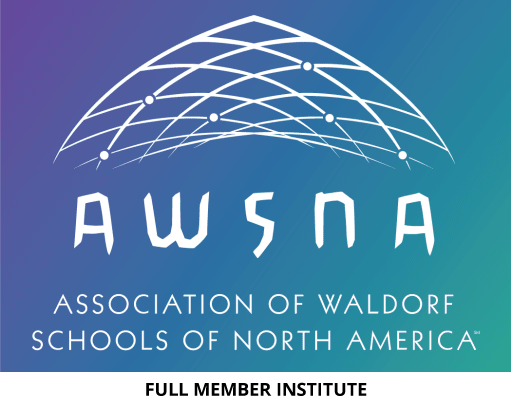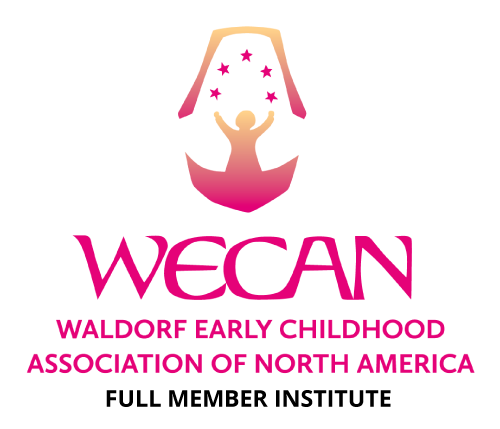Sunbridge Institute’s Waldorf Elementary Teacher Education program provides nationally-recognized credentials and practical, artistic, and philosophical foundations for successful Waldorf teaching in grades one through eight classrooms. Graduates are conferred a diploma in Waldorf Teacher Education.
Director: Rebecca Hays Nelson ’07
This program enrolls every year. The next cohort enters summer 2025 (session dates: July 7-25). Applications are now available. See Apply for application requirements and process.
Read our announcement about the recent reduction in our Elementary program tuition!
Highly experienced Waldorf elementary educators with significant relevant prior coursework may qualify to apply for our Elementary Completion Track.
Length and Format
Sunbridge’s Waldorf Elementary Teacher Education (WETE) program is a low-residency, 25-month, 500-hour program that meets minimum expectations set by AWSNA (the Association of Waldorf Schools of North America) for Waldorf teacher training.
During two school years (September-May) coursework takes place in a combination of synchronous (5 weekends) and asynchronous online work.
During three summers, three-week-long sessions are held in-person.
This format lessens the logistical and economic stressors inherent in attending an entirely in-person teacher education program; frees up financial resources and time needed for students to complete their AWSNA-mandated fieldwork (an essential component of effective teacher training); prioritizes classes best held in person; and enables students to be part of the activities of our historic Threefold Educational Foundation campus.
The Program Experience
The foundational goal of Sunbridge’s Elementary Teacher Education program is to help guide each new teacher in their development as a person and an educator. We strive to develop capacities that give you the means to teach out of yourself and, in turn, help you to develop the unique capacities of your own students.
Through course work and observation, you’ll come to know why Waldorf teachers do what they do, and out of this understanding you’ll come to learn what you need to do. Through experiences in the arts—learning how to play the recorder, perform eurythmy, engage in speech work, sing, paint, draw, sculpt, and do handwork—you’ll develop meaningful insights into the role of the arts in human development. Through thoughtful dialogue, assigned reading, and guidance, you’ll have the opportunity to develop a contemplative inner practice that will enhance your teaching and assist you along the lifelong, transformative path of becoming a Waldorf teacher.
You’ll be given countless tools for your Waldorf teaching, including suggestions for curriculum, materials, and invaluable support in both Sunbridge classrooms and Waldorf teaching classrooms.
Key Program Goals
It is expected that this program will prepare students to:
• Design activities or lessons that address the appropriate development of children’s thinking, feeling, and willing (commonly called cognition, affect, and behavior)
• Understand, interpret, and apply the philosophy and contemplative practices of Rudolf Steiner to their own preparation and practice, and demonstrate discernment for what is health-promoting for a child’s environment
• Teach in an aesthetic manner that includes the arts to enliven and support children’s learning experiences, as well as their humanity, in developmentally appropriate ways
• Demonstrate the skills necessary to create healthy learning communities within a classroom, school, and learning environment, including working cooperatively and supportively with colleagues and parents
• Regard teaching as ongoing research, and investigate questions using appropriate methods including observation, contemplative practice, and academic research skills
Curriculum
The WETE curriculum consists of coursework in the following areas:
- Foundations of Waldorf Pedagogy (also known as Foundation Studies)
- Child Development and Learning
- Grades 1-8 Curriculum (Language Arts, Math, Geometry, Science, Geography, and Form Drawing)
- Arts for the Teacher and the Student (Music, Painting, Sculpture, Drawing, Handwork, Speech, Gardening, and Spacial Dynamics)
- Class Plays
- Classroom Management
- Working with Neurodivergence
- Anti-Bias Education
- History and Philosophy of Education in the United States
- School Governance
- Contemplative Practice
- The Art of Organization (strategies for lesson preparation, parent communications, student assessment and grading, report-writing, and honing executive functioning skills)
Practical Work in the Classroom
In addition to its 500 hours of coursework, and in accordance with minimum expectations set by AWSNA, the Sunbridge Elementary program carries requirements for students to engage in practical experiences in Waldorf classrooms during the course of their studies. The specific requirements for these experiences—consisting of observation, student teaching, and/or mentored teaching—will vary according to your work status as a Waldorf teacher. Your advisor will work with you on specific details.
In-Service Students
Those Sunbridge students already working as full-time class teachers in an AWSNA-affiliated school must complete six weeks of pedagogical observation and teaching practice across the length of their program (with an additional one-year post graduation grace period for fieldwork completion). In-service students in good academic and financial standing will be assigned a Sunbridge-appointed mentor. Mentor visits and reports are required for in-service students’ graduation.
Pre-Service Students
All other Sunbridge students must complete twelve weeks of pedagogical observation and teaching practice across the length of their program (with an additional one-year post graduation grace period for fieldwork completion).
Support
Sunbridge is committed to the important role mentors and other individuals play in preparing educators for successful teaching careers. Our students:
- Work with external mentors Sunbridge hires from around the continent who provide new sets of eyes and fresh perspectives in assessing and advising;
- Are intentionally paired with mentors according to school types (urban / suburban / rural) and cultures to optimize the mentor/mentee relationship and impact;
- Receive ongoing support from Sunbridge program advisors, course faculty, and our director of education and organizational culture to whom they can turn for additional guidance;
- Have, in our director of education and organizational culture, someone on staff whose role it is to work directly with DEIJ topics for all students, as well as support the specific challenges faced by BIPOC students when entering Waldorf teacher trainings and schools.
Sunbridge Student Perks
At Sunbridge, we recognize that teacher preparation takes many forms. That’s why, in addition to our coursework, advising support, and fieldwork, we offer our students and graduates additional opportunities to further develop and hone their teaching expertise and acquire new insights and skills. These opportunities include:
- Highly-reduced discounts to our professional development courses and workshops while you are a student in our program, plus lesser discounts once you graduate;
- Free course material for Summer Series grades courses you are unable to attend because of scheduling conflicts with your WETE summer sessions;
- Free auditing of WETE classes once you are a program graduate (in good standing);
- The opportunity to be awarded credits toward a fully-accredited master of education or master of arts in liberal studies degree with self-designed concentration in Waldorf education through the Sunbridge/SUNY Empire State University partnership.
Subject Area Specialization
Combine your Elementary Teacher Education studies with coursework from one of our specialized subject certificate programs (Elementary Music or World Languages & Cultures) and graduate with a diploma in Waldorf Elementary Teacher Education with a concentration in either Music or World Languages & Cultures. For more information on this opportunity, contact our admissions office at [email protected] / 845-425-0055 x20.
Program Length
| First Year | Second Year | Third Year | |
|---|---|---|---|
| Summer | Three weeks on campus | Three weeks on campus | Three weeks on campus |
| Fall - Winter - Spring | Synchronous & asynchronous online sessions | Synchronous & asynchronous online sessions |
Students also have assignments to complete outside of course delivery.
Program Faculty
Sunbridge’s Elementary program faculty are highly involved in Waldorf classrooms, keeping their direct experience with children and schools current. You can view their bios here.
The Sunbridge Diploma
Completion of or enrollment in a Waldorf teacher education program is widely regarded as a prerequisite of employment for Waldorf class teachers. Sunbridge is a full member of AWSNA, and a Sunbridge Elementary Teacher Education diploma indicates completion of full AWSNA requirements for teacher training.
Please note that our diplomas are not academic degrees, as they reflect clock hours, not credits. Due to fluctuations and variations from state-to-state in the U.S. regarding requirements for teaching credentials, it is important to research your state’s regulations regarding requirements to be licensed to teach in a private or public school.
Entrance Requirements
- AWSNA’s 100-hour minimum expectation for Foundation Studies coursework is fulfilled through our curriculum. Having this coursework directly embedded in our program eliminates the need for applicants to complete Foundation Studies as a prerequisite for enrollment. It also enables you to have an immediate context for your Foundation Studies to apply to your classroom work.
- Applicants must have completed a minimum of 60 credits at an accredited college or university (or the equivalent for international study) or be enrolled in a bachelor’s program and on track to complete those 60 credits before your Sunbridge graduation.
- You are expected to have some familiarity with Waldorf education and to be available to complete fieldwork requirements.
- Read our Apply page for full information.
Master’s Degree
Successful completion of their Sunbridge studies enables our Elementary program students and graduates who hold a bachelor’s degree from a regionally-accredited institution to receive 12 credits toward a 30- or 36-credit, fully-accredited SUNY master of education or master of arts in liberal studies degree with self-designed concentration in Waldorf education, through our partnership with Empire State University of the State University of New York.
2025-2026 Academic Calendar
Summer 2025 Term (In Person)
Monday, July 7 – Friday, July 25
Note: First-year students may be asked to attend a Sunday afternoon welcome/orientation prior to Monday’s start of class
Fall 2025-Winter 2026-Spring 2026 Term (Online)
Friday-Saturday, October 17-18
Friday-Saturday, November 21-22
Friday-Saturday, January 23-24
Friday-Saturday, February 27-28
Friday-Saturday, April 17-18
plus asynchronous online coursework
For Additional Information
Please see our Teacher Education Program Overview for more information on Waldorf teacher education at Sunbridge Institute.
Learn more about Waldorf education.
Read a Sunbridge article in the Fall 2016 issue of Lilipoh magazine on Waldorf teaching and grades teacher education.
If you have any questions, please contact us or reach out to our admissions office at [email protected] / 845-425-0055 x20
Please Note: Sunbridge Institute Waldorf Teacher Education programs and intensives are recognized by AWSNA, the Association of Waldorf Schools of North America, and are licensed by BPSS, the Bureau of Proprietary School Supervision of the New York State Education Department. These offerings do not lead to New York State teaching certification.
Sunbridge Institute reserves the right to cancel or change any offering at any time and to make faculty or course substitutions when necessary.


